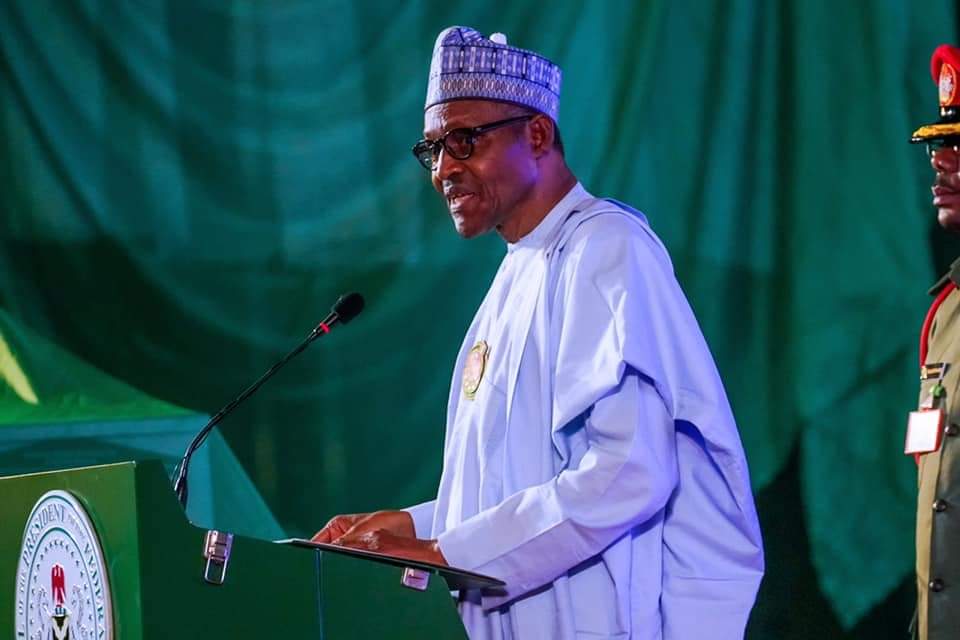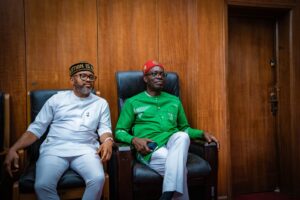
Five weeks into President Muhammadu Buhari’s first term in office, I wrote a column wondering whether Boko Haram would demystify him.
He had swept into office as the tested general projecting an air of confidence that he would quickly bring the insurgents to heel. But the terrorists welcomed him with an intense burst of bloodletting for which the new administration had no solution.
Five years after, his government is confronted with security challenges that have metastasized beyond the insurgency. Things have been exacerbated by the #EndSARS protests which grounded large parts of the country for the better part of two weeks.
One lingering fallout is the collapse of policing across the country. The Nigerian Police Force for so long used to acting ‘forcefully,’ found themselves in strange straits with the authorities restraining them – even when their lives were threatened and their facilities destroyed.
Long before matters came to a head with parts of the country dissolving into massive orgies of looting, the police had disappeared from the streets. Only a fraction have returned and those ones showing little zeal for work.
Several accounts speak of disillusionment within the ranks. One recent report revealed hundreds of cops had turned in their resignation in the aftermath of the humiliation they suffered during the protests.
Government officials have made a show of reaching out to the force in encouragement, but it appears the trauma struck deep and it would take a while for things to return to normal.
In the interim, a certain tension hangs over the land. Take two key flashpoints of the recent violence – Lagos and Benin-City. The latter has been the scene of bloody clashes between rival cult groups that have left close to 30 persons dead. Among the casualties was an Assistant Commissioner of Police.
As though this was not bad enough, close to 2,000 inmates who escaped in jailbreaks are still on the loose. Some are said to be threatening the lives of police prosecutors who sent them to prison, the others definitely returning to the only life they know.
It may not be as dramatic as what’s going on in Edo, but similar violence has been recorded in Lagos suburbs of Ketu and Mushin where criminal gangs emboldened by the continued absence of the police, have resorted to violence and damaging of private property.
What should worry us is how easily internal security arrangements have been overrun and compromised.
The violence exposed how undermanned the police are. They were easily overwhelmed by the massive mobs that embraced the riots. It was what pushed Lagos State Governor, Babajide Sanwo-Olu, to run to the military for help to stabilise the city.
So far, not many are talking about the giant elephant in the room – the failure of intelligence. The government was clearly caught unawares and wrong-footed at every turn. Even if it was aware something was afoot, its security reports understated the threats and didn’t understand what was about to explode. Intelligence agencies with all manner of fancy names simply fell down on the job.
Even the military which is the last resort where internal security arrangements fail, are themselves overstretched with commitments to joint operations in several states and the continuing fight against insurgents in the Northeast.
That leaves us with a dangerous and unstable security situation that cannot be sustained for long. Things could definitely get worse quickly, if this boycott of duties by the police is not swiftly addressed before the onset of the festive season – a time when traditionally there’s a spike in criminal activity.
For the short term, we must admit we have a serious problem with violent crime that’s only going to get worse given that lots of firearms were plundered by hoodlums who vandalised and torched over 200 police stations. They are not holding these items as keepsakes; they would be deployed for something nefarious sooner or later.
Aside the weapons stolen from the police, gunrunners also had a field day in the window of violence during the protests that saw them overrunning the land border posts and smuggling in whatever they wanted. At some point their deadly merchandise would get into the hands of criminals.
To address the situation, the authorities have to move swiftly beyond the speechmaking. Concrete steps should be taken to restore the damaged infrastructure and erase constant reminders of a traumatic chapter.
The force has to be managed psychologically to restore their sense of worth. They should be made to understand that the #EndSARS protest was not a rejection of the police as an institution, but a repudiation of the model of policing that saw nothing wrong in violating human rights and dehumanising those they are meant to protect. After all, the protesters demanded, among other things, an improvement in service conditions for the police.
For the long term, the protests – especially the continuing controversy over what actually happened at the Lekki toll gate – make it imperative for the nation to revisit the idea of a force we can run to when the police is outgunned, so as to insulate the army as much as possible from getting sucked into internal security issues. The National Guard idea floated by former President Ibrahim Babangida is well worth another look in the circumstance.
This is in addition to taking firm legislative steps on the state police proposal to make it a reality. All these structures would help to raise the numbers available for policing our exploding population.
There can be no progress – economic or otherwise – if the country isn’t secure. Potential investors would look at what just played out and the ease with which Lagos was burnt down and wonder whether it is wise to put resources in such a volatile environment.
As he winds down his time in office, President Buhari needs to take a cold hard look at what his legacy in the area of security would be. The image of the swashbuckling general who crushed Maitatsine fundamentalists in the 80s and chased their remnants all the way into Chad, helped propel him into office.
Unless he quickly stabilises the country by embracing fresh ideas, the current multifaceted security challenges would quickly demystify him as no better than his widely-derided predecessor.”












